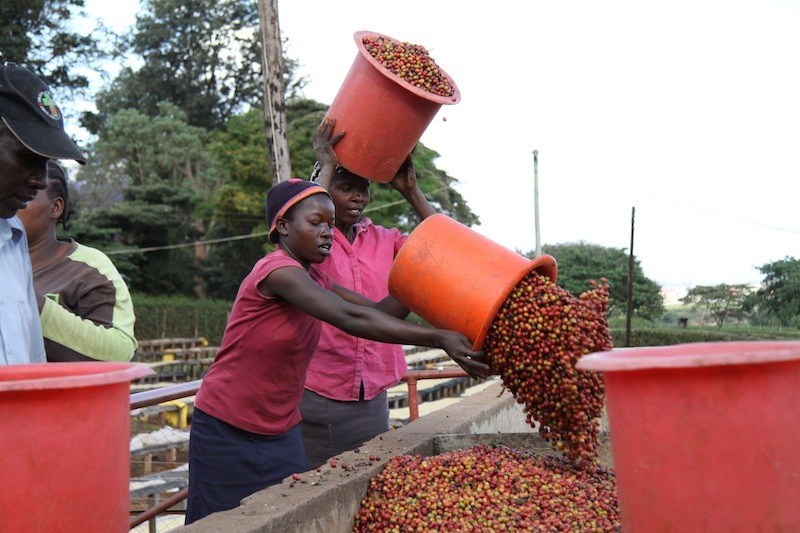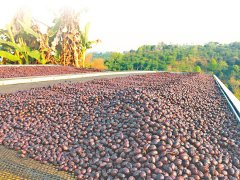Does drinking coffee increase the risk of cancer? There are new discoveries in genetic research!
Professional coffee knowledge exchange more coffee bean information please follow the coffee workshop (Wechat official account cafe_style)
According to the Australian Broadcasting Corporation on July 18, a new study by QIMR Berghofer, a medical research institute in Queensland, shows that there is no correlation between daily coffee consumption and the eventual development of cancer, and drinking coffee does not increase or reduce the risk of dying from cancer.

The effect of drinking coffee on health has always been a hot topic in the scientific and medical circles. Using the results of previous internationally observed studies and Mendell randomized genetics, the QIMR Berghofer Institute of Medicine in Kunzhou analyzed the health data of more than 300,000 coffee drinkers to assess their cancer risk. Data on coffee drinking habits were provided by the participants themselves. Mendelian randomization is a genetic technique that observes the causal response of a target disease by changing the external conditions of genes with known functions. The results have been published in the International Journal of Epidemiology.
Even though coffee may contain some chemicals, people don't get cancer in terms of the amount of coffee they eat every day, said Stuart McGregor, an associate professor at the institute. McGregor believes the study could have an impact on public health around the world.
Associate Professor McGregor said: "using a gene-based approach to assess whether coffee increases the risk of cancer is a very effective method, and we have used it to prove that if you drink coffee, eventually your risk will not change." "
"Genetics doesn't lie. There is no final conclusion on other diseases, and we need to do more. "he said.

In the past, many animal tests have confirmed that coffee contains both carcinogenic substances and antioxidants. The health benefits of coffee have long been the subject of heated debate between the scientific community and the medical community.
About 2 billion cups of coffee are sold worldwide every day. For coffee, which contains a possible carcinogen, acrylamide, which is also found in fried or baked starchy foods, there have been lawsuits in the United States in the past about whether coffee shops need to write warnings on coffee cups. This is the case of "coffee causing cancer", which sparked a series of international disputes last year, and finally a California court ruled that coffee chains and retailers do not have to put warning labels on coffee cups about the risk of causing cancer.
Jue-Sheng Ong, the lead researcher of the study, said he was surprised by the results. "We have always believed that drinking coffee can either bring some kind of medical benefit or increase the risk of cancer. Obviously, this is not the case. "
However, Associate Professor McGregor believes that government policy does not need to be affected. At the very least, the findings reassure coffee lovers to drink coffee.
END
Important Notice :
前街咖啡 FrontStreet Coffee has moved to new addredd:
FrontStreet Coffee Address: 315,Donghua East Road,GuangZhou
Tel:020 38364473
- Prev

What is Coffee Flavor A brief discussion on the description of Coffee Flavor
Professional coffee knowledge exchange more coffee bean information please follow the coffee workshop (Wechat official account cafe_style) what is the coffee flavor? The flavor review of each kind of coffee combines people's intuitive description of the taste of coffee, including its thickness (consistency), acidity, aroma, bitterness, sweetness and aftertaste. The so-called balanced flavor of coffee refers to coffee.
- Next

Pu'er Coffee Breakthrough the quality Route _ Yunnan Coffee is recognized by the World
Professional coffee knowledge exchange more coffee bean information Please follow the coffee workshop (Wechat official account cafe_style) many people do not know that in addition to tea, Yunnan is also rich in coffee. At present, Yunnan coffee planting area of 1.8 million mu, annual output of more than 150000 tons of coffee beans, accounting for 98% of the country, including Pu'er City has 800000 mu, the area and output are the first in Yunnan. But for many years, Yunnan
Related
- Can I make coffee a second time in an Italian hand-brewed mocha pot? Why can't coffee be brewed several times like tea leaves?
- Hand-brewed coffee flows with a knife and a tornado. How to brew it? What is the proportion of grinding water and water temperature divided into?
- What is the difference between Indonesian Sumatra Mantinin coffee and gold Mantinin? How to distinguish between real and fake golden Mantelin coffee?
- What does bypass mean in coffee? Why can hand-brewed coffee and water make it better?
- Unexpected! Ruixing Telunsu lattes use a smoothie machine to foam milk?!
- % Arabia's first store in Henan opens into the village?! Netizen: Thought it was P's
- Does an authentic standard mocha coffee recipe use chocolate sauce or powder? Mocha Latte/Dirty Coffee/Salty Mocha Coffee Recipe Share!
- What is the difference between Vietnam egg coffee and Norway egg coffee? Hand-brewed single product coffee filter paper filter cloth filter flat solution!
- What is the difference between sun-cured and honey-treated coffee? What are the differences in the flavor characteristics of sun-honey coffee?
- How to make Italian latte! How much milk does a standard latte use/what should the ratio of coffee to milk be?

